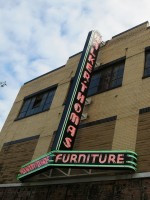Deadly Force in Philly (and Milwaukee)
Last month, the U.S. Department of Justice issued a voluminous report on uses of deadly force by the Philadelphia Police Department. In recent years, there has been a drop in both violent crime and assaults on police officers in the City of Brotherly Love, but officer-involved shootings (OISs) have remained stubbornly high. Amidst media coverage of rising OIS numbers in 2013, the Police Department requested assistance from the DOJ in order to assess the problem.
The new report, authored by George Fachner and Steven Carter, finds there were 394 OISs in Philadelphia between 2007 and 2014, for an average of 49 per year. The suspects were unarmed in 15% of the cases. Fachner and Carter provide a wealth of data regarding the 394 OISs and dozens of recommendations for the Department.
One recommendation is that the “PPD should publish a detailed report on use of force, including deadly force, on an annual basis. The report should be released to the public.”
I’m pleased to say that we are already doing such annual reports here in Milwaukee. How do the numbers compare?

 Prof. David Papke has a new article in print, entitled “Perpetuating Poverty: Exploitative Businesses, the Urban Poor, and the Failure of Reform,” appearing in 16 St. Mary’s Law Review on Race & Social Justice 223 (2014). Here is the abstract:
Prof. David Papke has a new article in print, entitled “Perpetuating Poverty: Exploitative Businesses, the Urban Poor, and the Failure of Reform,” appearing in 16 St. Mary’s Law Review on Race & Social Justice 223 (2014). Here is the abstract: